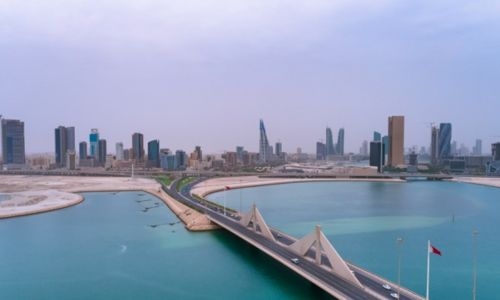The Gulf Cooperation Council (GCC) countries have seen a significant increase in their total population, according to recent statistics released by the GCC Statistical Centre. The population of GCC countries grew by 7.3% in 2023 compared to 2021, reaching a total of 57.6 million people. Bahrain secured the fifth position among GCC countries in terms of population growth, with a rise of 3.9 million individuals over the past two years, bringing the total population to 53.6 million in 2021.
Bahrain experienced a 4.8% increase in its population, going from approximately 1.5 million in 2021 to 1.6 million in 2023. Kuwait saw the highest population growth among GCC countries, with a 16.5% increase, reaching 4.9 million in 2023 from 4.2 million in 2021. Oman followed closely with a 14.1% population surge, reaching 5.2 million in 2023 from 4.5 million in 2021. Qatar recorded an 11.5% increase in population, reaching 3.1 million in 2023 from 2.7 million in 2021.
The United Arab Emirates experienced an 8.3% population growth, reaching 10.7 million in 2023 from 9.9 million in 2021. Saudi Arabia, despite ranking first in terms of population, saw a 4.5% increase, reaching 32.2 million in 2022 from 30.8 million in 2021. Data for 2023 is currently unavailable. The GCC Statistical Center projects the global population to reach 10.2 billion by 2080, with the world population standing at 8.2 billion in 2023.
The population growth in GCC countries reflects the economic and social development in the region, leading to an increase in infrastructure and services to meet the needs of the growing population. With the UAE and Saudi Arabia being major economic hubs in the GCC, the rise in population presents both challenges and opportunities for these countries in terms of urban planning, healthcare, education, and employment.
As the population continues to grow in the GCC countries, there is a need for sustainable development policies and strategies to ensure the well-being and prosperity of the residents. Governments in the region are focusing on diversifying their economies, investing in renewable energy sources, and improving healthcare and education services to accommodate the growing population and promote long-term growth and stability.
The population growth in the GCC countries also presents opportunities for businesses and investors looking to tap into the expanding market. With a young and dynamic population, there is a demand for new products, services, and technologies, making the region an attractive destination for international companies seeking growth and expansion. The growth in population also contributes to the cultural diversity and vibrancy of the GCC countries, creating a rich tapestry of traditions, languages, and customs.








